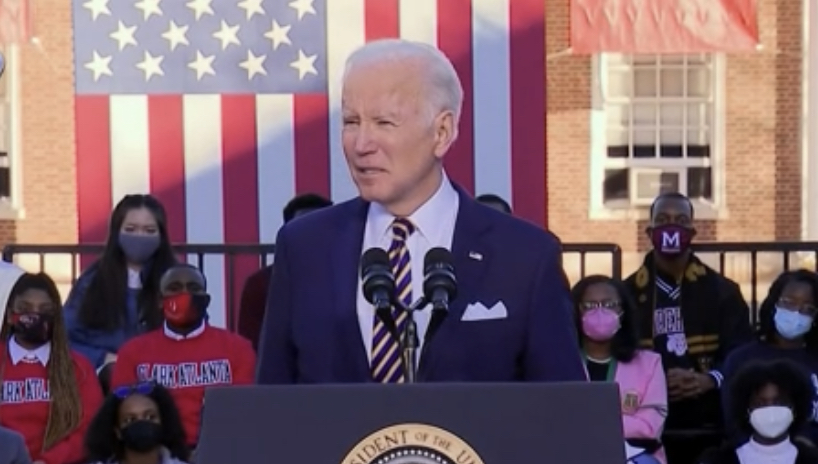
Nicolle Generaux | A&E Editor
January 21, 2022
Should the American people give more power to the federal government in order to have more secure elections?
Article I and II of the United States Constitution state that Congress has the ability to set the “Times, Places and Manner” of congressional elections, as well as allow Congress to designate the “Time” for the election of presidents. Therefore, the federal government can regulate certain factors of elections, but ultimately, the states are responsible for the administration of the elections of senators, representatives and presidents.
Our founding fathers ensured that our federal government would not be primarily in charge of the elections, as the government could become corrupt, and with this power, overtake our democratic election system, ending democracy in the United States as we know it. To those men, it would be like giving a king control of the elections that keep him on the throne — therefore a federal government should not control elections that keep them in office.
Although this was the fundamental basis of elections for our founding fathers, many politicians, including our current president Joe Biden, wish to change this, giving more power to the federal government over elections.
The House of Representatives just passed a bill, which included the John R. Lewis Voting Rights Advancement Act and the Freedom to Vote Act, that aims to centralize presidential elections, federalizing the electoral system. States, under this bill, would be required to get clearance from the Department of Justice for any changes to voting laws, whether it be changing locations of voting polls or instituting stricter voting ID requirements. Along with that, the federal government would enforce a list of requirements and restrictions for the elections, some of which include: ending registration deadlines, counting ballots that were cast out of precinct or county, allowing felons to vote after release from prison, lessening restrictions of voter identification laws, allowing for more mail-in voting, same-day registration for voting, and more.
Since restrictions on the election process vary depending on the state, the bill seeks to make the election process (like voter rights, regulations of voting locations, etc.) the same in every state, and ensure that the states cannot change it without the federal government’s approval. This bill must now be approved by the Senate before becoming law.
Many people believe that most of these laws within the bill are fair, protecting our elections and our democracy altogether.
“I think this bill would help protect voter rights,” San Clemente High School sophomore Jackson Talley said. “Ultimately, it would make our elections run more efficiently.”
In opposition, some citizens feel that centralizing the elections would give the federal government too much power over elections.
“The restrictions in these bills seem like they would help secure the election process, but it’s also giving the federal government a lot of power,” an anonymous sophomore said. “If the federal government can overrule states’ decisions regarding elections or voting rights, the federal government has a tighter grip on the election process than the states do – which is a scary thought.”
So, there is a large question to consider: in order to secure the election process, which politicians believe is necessary, should we put more faith in the federal government, giving them much of the power over our democratic system?
Regardless of one’s opinion, it is important to note that this bill is asking the American people to choose freedom or security. To choose freedom is to reject the bill, allowing the states to keep primary responsibility for the election process, which also means that there will continue to be different regulations for the election process depending on the state. To choose security is to pass the bill, ensuring that the election process is the same in all states, but willingly giving the federal government the keys to the car regarding our democratic elections.
With great power comes great responsibility – but that does not necessarily mean that politicians will always act in the best interests of the American people?

Leave a Reply